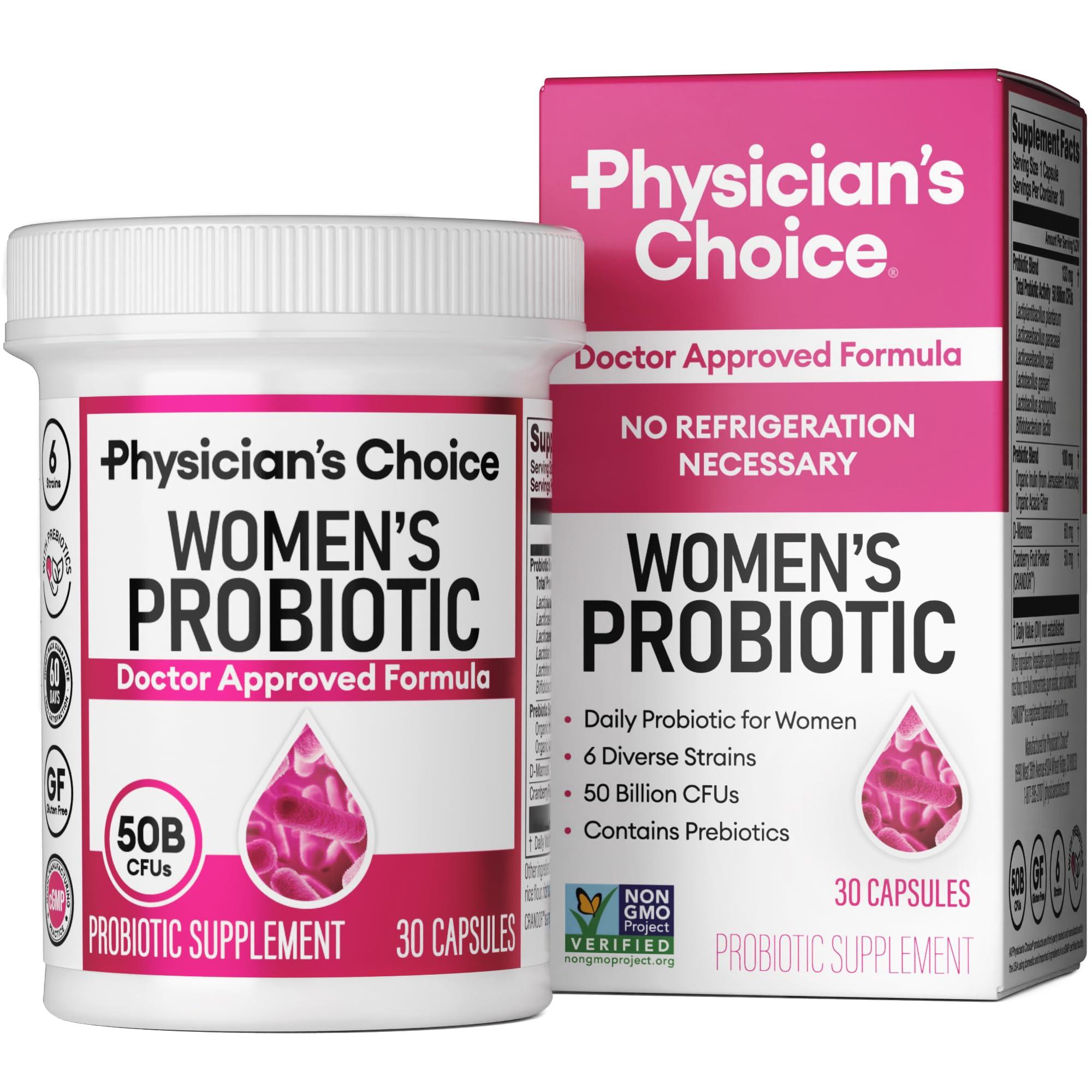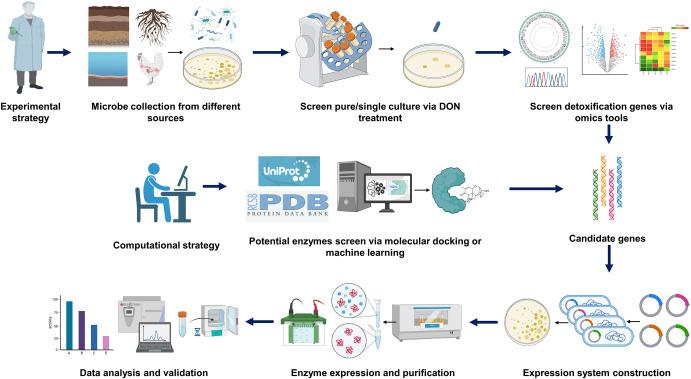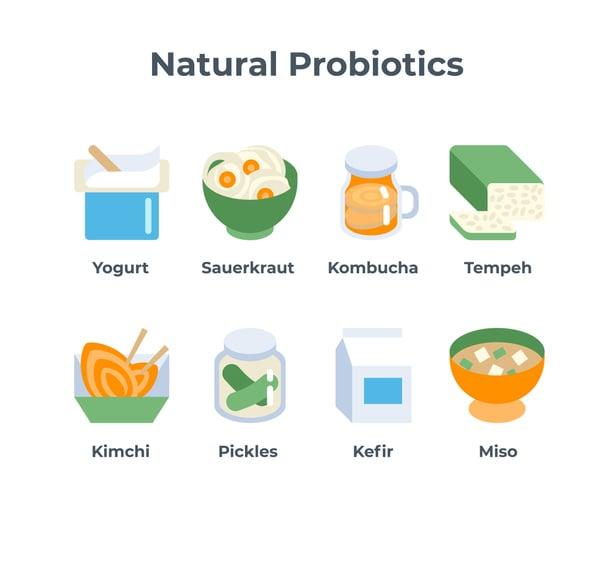In an age where the allure of wellness trends often takes center stage,the quest for gut health has emerged as a pivotal cornerstone in the journey towards overall well-being. Amidst the flurry of detox diets and wellness fads, one of the most promising avenues for restoring harmony within our digestive systems lies in the realm of probiotics. these tiny, beneficial bacteria play a significant role not only in digestion but also in enhancing our immune response and even influencing our mood. As we delve into the engaging world of probiotics and explore effective detox methods, we invite you to join us in uncovering how these natural solutions can rejuvenate our gut health and promote a balanced lifestyle, paving the way for a brighter, healthier future.
Table of Contents
- The Science Behind Probiotics and Their Role in Gut Health
- exploring the Detoxification Process: Why It Matters
- Natural Sources of Probiotics for a Healthier Microbiome
- Practical Tips for Incorporating Probiotics into Your Daily Routine
- Q&A
- The Conclusion
The Science Behind Probiotics and Their Role in Gut Health
The human gut is home to trillions of microorganisms, collectively known as the gut microbiota. These beneficial bacteria play a crucial role in maintaining digestive health, supporting the immune system, and even impacting mood and cognitive function. The introduction of probiotics—live microorganisms that confer health benefits—can considerably enhance the balance of this diverse ecosystem. By adding live bacteria to the gastrointestinal tract, probiotics help restore balance, particularly after disturbances caused by poor diet, illness, or antibiotic use.
Research has shown that not all probiotics are created equal; they are categorized into various strains, each with unique properties and health benefits. Some of the most studied probiotic strains include:
- Lactobacillus: Supports lactose digestion and has been linked to alleviating gastrointestinal discomfort.
- Bifidobacterium: Promotes the production of short-chain fatty acids, vital for gut integrity.
- Saccharomyces boulardii: A yeast probiotic that can help combat antibiotic-associated diarrhea.
The Action of probiotics is multi-faceted. They can enhance the gut lining’s barrier function, preventing harmful substances from entering the bloodstream. Additionally, they produce substances that can inhibit pathogenic bacterial growth and regulate immune responses. Consuming probiotics regularly may also contribute to reduced symptoms of conditions like irritable bowel syndrome (IBS),inflammatory bowel disease (IBD),and even allergies in some individuals. The modulation of the gut microbiota through probiotics represents a promising avenue for restoring health.
To illustrate the impact of various probiotic strains on digestive health, consider the following table:
| Probiotic Strain | Health Benefit | Best Sources |
|---|---|---|
| Lactobacillus rhamnosus | Diarrhea and gut health support | Yogurt, supplements |
| Bifidobacterium longum | improve gut barrier function | fermented foods, kefir |
| Streptococcus thermophilus | Lactose digestion aid | Cheese, yogurt |
Exploring the Detoxification Process: Why It Matters
Detoxification plays a crucial role in maintaining optimal health by allowing the body to remove harmful toxins and restore balance. Our bodies are continuously exposed to various environmental pollutants, dietary additives, and metabolic waste. These toxins can accumulate over time, leading to fatigue, digestive issues, and a weakened immune system. The detoxification process, especially when supported by probiotics, helps to clear out these impurities, revitalizing our overall well-being.
Probiotics are beneficial bacteria that reside in our gut and contribute to a healthy digestive environment. They not only aid in breaking down food but also enhance the detoxification process by:
- Reinforcing the intestinal barrier: Probiotics strengthen the gut lining, preventing harmful substances from entering the bloodstream.
- Competing with harmful bacteria: By populating the gut with beneficial microorganisms,probiotics help maintain a balanced microbiome,reducing the growth of pathogenic bacteria.
- Stimulating the detoxification pathways: Certain strains of probiotics support liver function and assist in the detoxification of heavy metals and chemicals.
Furthermore, the detoxification process can be significantly influenced by dietary choices. Incorporating fiber-rich foods, antioxidants, and fermented products can enhance the effectiveness of probiotics. Here’s a rapid overview of foods that promote both detoxification and gut health:
| Food Type | Benefit |
|---|---|
| Cruciferous Vegetables (e.g., broccoli, kale) | Support liver detox enzymes |
| Fermented Foods (e.g., yogurt, kimchi) | Boost probiotic levels |
| Fruits (e.g., berries, citrus) | Rich in antioxidants to fight toxins |
Embracing a holistic approach to detoxification that incorporates probiotics can lead to profound improvements in gut health and general vitality. By understanding how these interconnected processes work together, we empower ourselves to take charge of our health.This knowledge not only underscores the importance of detoxification but also highlights its potential in fostering a rejuvenated, balanced state of being.
Natural Sources of Probiotics for a Healthier Microbiome
When aiming to enhance your gut health, turning to natural sources of probiotics can be an extraordinary choice. These live microorganisms work to improve the composition of your gut microbiome, fostering a balanced environment conducive to digestion, immune function, and overall health. Incorporating a variety of probiotic-rich foods into your daily diet can provide a appetizing and nutritious approach to promoting gut wellness.
Fermented dairy products are among the most recognized sources of probiotics. Yogurt, as a notable example, is not only rich in protein and calcium but also brimming with Lactobacillus and Streptococcus species that thrive in your digestive system. Kefir,a fermented milk drink,offers a diverse array of probiotic strains and is more digestible for those who might be lactose intolerant. Other dairy options include:
- Cheese (such as Gouda and cheddar)
- Cultured buttermilk
- Ice cream made with live cultures
Along with dairy,plant-based options deliver robust probiotic benefits.Fermentation enhances the fiber content of fruits and vegetables, turning them into gut-friendly options.Kimchi,a spicy Korean dish made with fermented vegetables,is loaded with beneficial bacteria,just like sauerkraut,which offers a tangy flavour and crunch. Other stellar contenders include:
- Miso, a traditional Japanese soybean paste
- Tempeh, a fermented soy product that resembles meat
- Kombucha, a fermented tea rich in probiotics and antioxidants
The power of these foods isn’t just in the probiotics they provide; they also tend to be high in vitamins, minerals, and other beneficial compounds that support a healthy gut environment. A balanced diet that emphasizes these foods can lead to greater sustainability of probiotics in your system. Below is a brief comparison of popular probiotic-rich foods you could consider integrating into your wellness routine:
| Food | Main Probiotic Strains | Additional Benefits |
|---|---|---|
| Yogurt | Lactobacillus, Bifidobacterium | Rich in calcium, supports bone health |
| Kefir | Kefir grains (various strains) | Improves lactose digestion, boosts immunity |
| Kimchi | Lactobacillus kimchii | High in fiber, antioxidant properties |
| Kombucha | Acetobacter, Gluconobacter | Rich in enzymes, enhances detoxification |
Practical Tips for Incorporating Probiotics into Your Daily Routine
Incorporating probiotics into your daily life can be both simple and enjoyable. Start by integrating probiotic-rich foods into your meals. Yogurt, kefir, sauerkraut, and miso are excellent options. Try to include at least one of these items in your breakfast or lunch. For instance, add a scoop of yogurt to your smoothie or enjoy sauerkraut as a side with dinner. This not only enhances your meals but also enriches your gut with beneficial bacteria.
Another effective method is to choose probiotics in supplement form, particularly if your diet lacks natural sources. Look for a high-quality probiotic capsule or powder that contains multiple strains and at least several billion CFUs (colony-forming units). You can easily take these with a glass of water during your morning routine or sprinkle a powder into your smoothies. It’s a quick way to ensure your gut health is actively supported.
Don’t forget to keep your hydration levels up! drinking plenty of water helps maintain a healthy gut environment. To boost the benefits, consider infusing your water with probiotic-rich foods. Slice cucumbers, lemons, or ginger and let them steep in water for a refreshing probiotic drink. this not only keeps you hydrated but also adds a unique flavor, encouraging you to drink more throughout the day.
Lastly, pair your probiotics with prebiotic foods, which feed the good bacteria in your gut. Incorporate ingredients such as bananas, asparagus, garlic, and onions into your meals. This combination will maximize the effectiveness of probiotics, creating a balanced environment for your gut flora to thrive. A simple stir-fry with garlic and asparagus can be a delicious way to achieve this synergy!
Q&A
Q&A: Probiotics and Detox Restoring Gut Health Naturally
Q1: What are probiotics, and why are they crucial for gut health?
A: Probiotics are live microorganisms, often referred to as “good bacteria,” that contribute to the balance of gut flora. They are essential for gut health as they assist in digestion, enhance nutrient absorption, and support the immune system.When our gut is populated with beneficial bacteria, we can better fend off harmful bacteria and maintain overall health.
Q2: How do detox practices influence gut health?
A: Detox practices aim to eliminate toxins and harmful substances from the body, which can help restore balance in the gut. A gentle detox can improve digestion, reduce inflammation, and support the growth of beneficial bacteria, effectively creating a more harmonious environment for gut flora to thrive.
Q3: Can you explain the relationship between probiotics and detoxing?
A: The relationship between probiotics and detoxing is synergistic. While detoxing helps to cleanse the digestive system, introducing probiotics during or after this process can replenish beneficial bacteria that may have been disrupted. This ensures that the gut is not only cleansed but also fortified with the necessary microbes for optimal health.
Q4: What are some natural sources of probiotics?
A: Natural sources of probiotics include fermented foods such as yogurt, kefir, sauerkraut, kimchi, kombucha, and miso. These foods contain live cultures that support gut health. Incorporating these into your diet can naturally enhance the diversity of your gut microbiome.
Q5: Are there any specific detox methods that promote gut health?
A: Yes, certain detox methods can be particularly beneficial for gut health. Practices like juice fasting (with a focus on vegetable-based juices), herbal detox teas, and a clean diet rich in fruits, vegetables, and whole grains can promote gut healing. ensuring adequate hydration is also crucial, as water helps in the elimination of toxins and supports digestion.
Q6: How long does it typically take to notice improvements in gut health after starting probiotics and detox practices?
A: The timeline can vary for each individual. Some people may start to notice changes in their digestion, energy levels, and overall well-being within a few days or weeks. For others, it may take a month or more to fully experience the benefits. Consistency is key; maintaining a healthy diet and regularly consuming probiotics can lead to sustained improvements over time.
Q7: Are there any risks or side effects associated with probiotics and detoxing?
A: While probiotics are generally considered safe, some individuals may experience mild side effects such as gas or bloating as their gut adjusts to new bacteria. Detoxing can also pose challenges, particularly for those with certain medical conditions; it’s advisable to consult with a healthcare professional before starting. Proper guidance ensures that detox practices align with your individual health needs.
Q8: Can anyone benefit from probiotics and detoxing, or are there specific groups who should be cautious?
A: Most people can benefit from probiotics and gentle detox practices. however, individuals with compromised immune systems, serious health conditions, or those who are pregnant should exercise caution and consult healthcare providers before making any significant changes. Tailoring approaches to your unique situation ensures safety and effectiveness.
Q9: How can one incorporate both probiotics and detox methods into a daily routine?
A: Incorporating probiotics and detox methods can be as simple as including fermented foods in your meals, starting your day with a glass of water and lemon, and ensuring a diet rich in fiber. Setting aside specific days for light detox practices, such as consuming only juices or smoothies, can also be effective. Consistency and balance are key; focusing on maintaining a healthy lifestyle will lead to the best outcomes for gut health.
Q10: What final tips can you offer for someone looking to restore their gut health naturally?
A: Start slowly and listen to your body. Incorporate a variety of healthy, whole foods into your diet, stay well-hydrated, and give your gut time to adjust to any changes. Consider keeping a journal to track how different foods and practices affect your digestion. Lastly, remember that restoring gut health is a journey, so be patient and persistent in your efforts!
The conclusion
the journey to restoring gut health naturally is not just a trend but a transformative experience. Probiotics emerge as powerful allies in this quest,offering a simple yet effective means to nurture our digestive systems and rebalance our internal ecosystems. By integrating these beneficial microorganisms into our diet and embracing detox practices, we can pave the way for improved overall health and vitality.
Navigating the world of gut health can sometimes feel overwhelming, but by understanding the role of probiotics and the importance of detoxification, you’re equipped to make informed choices that resonate with your body’s needs. Remember, healing the gut is a gradual process—one that requires patience, attention, and a commitment to nurturing your body from the inside out.As you embark on this path towards better gut health, keep in mind that every small step counts. Whether it’s savoring a probiotic-rich yogurt, sipping on gut-friendly teas, or incorporating more whole foods into your meals, each choice contributes to your well-being. Trust in nature’s wisdom,and let your journey to restored gut health be one of discovery and empowerment.Here’s to a happier, healthier you!




